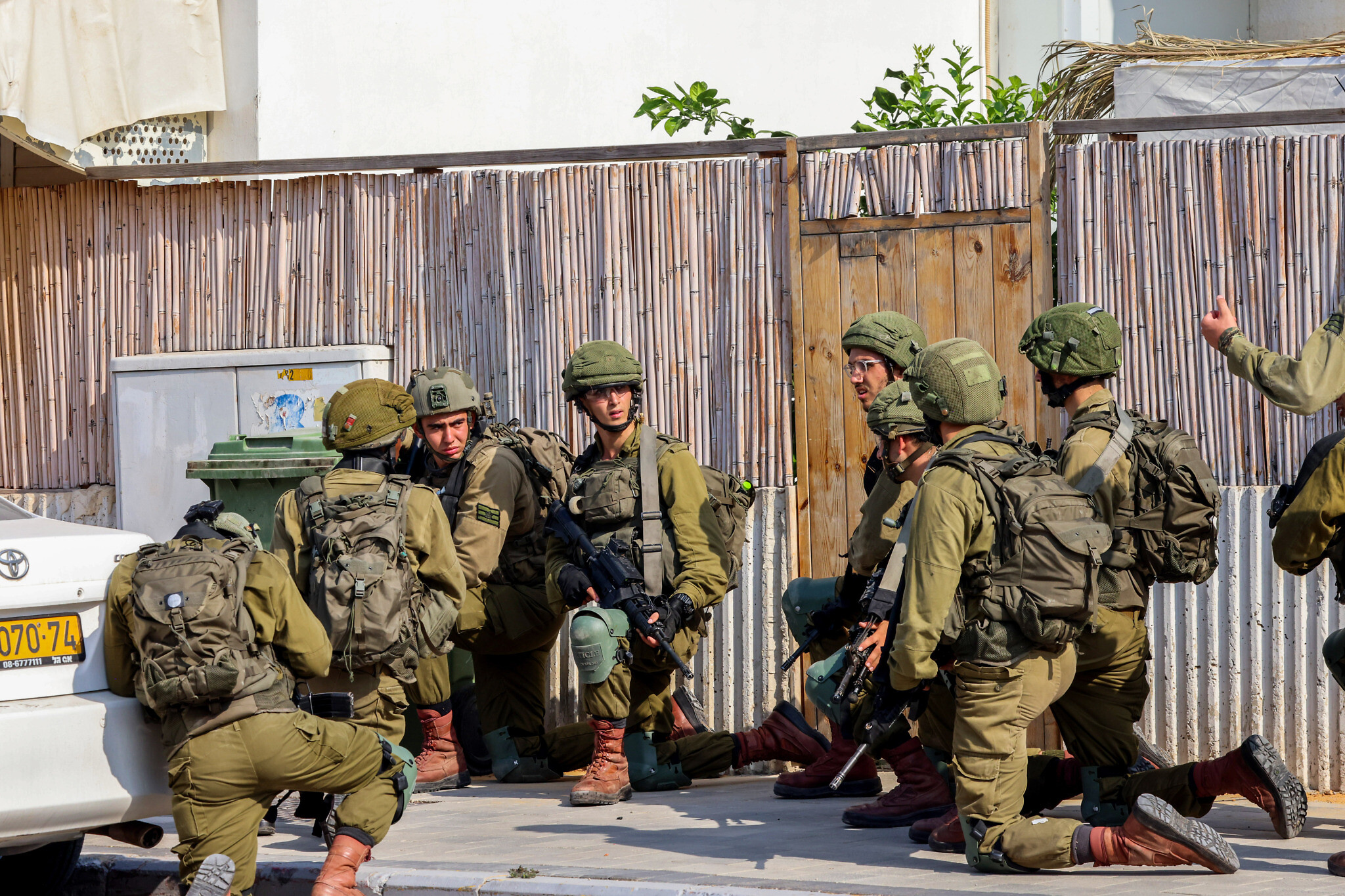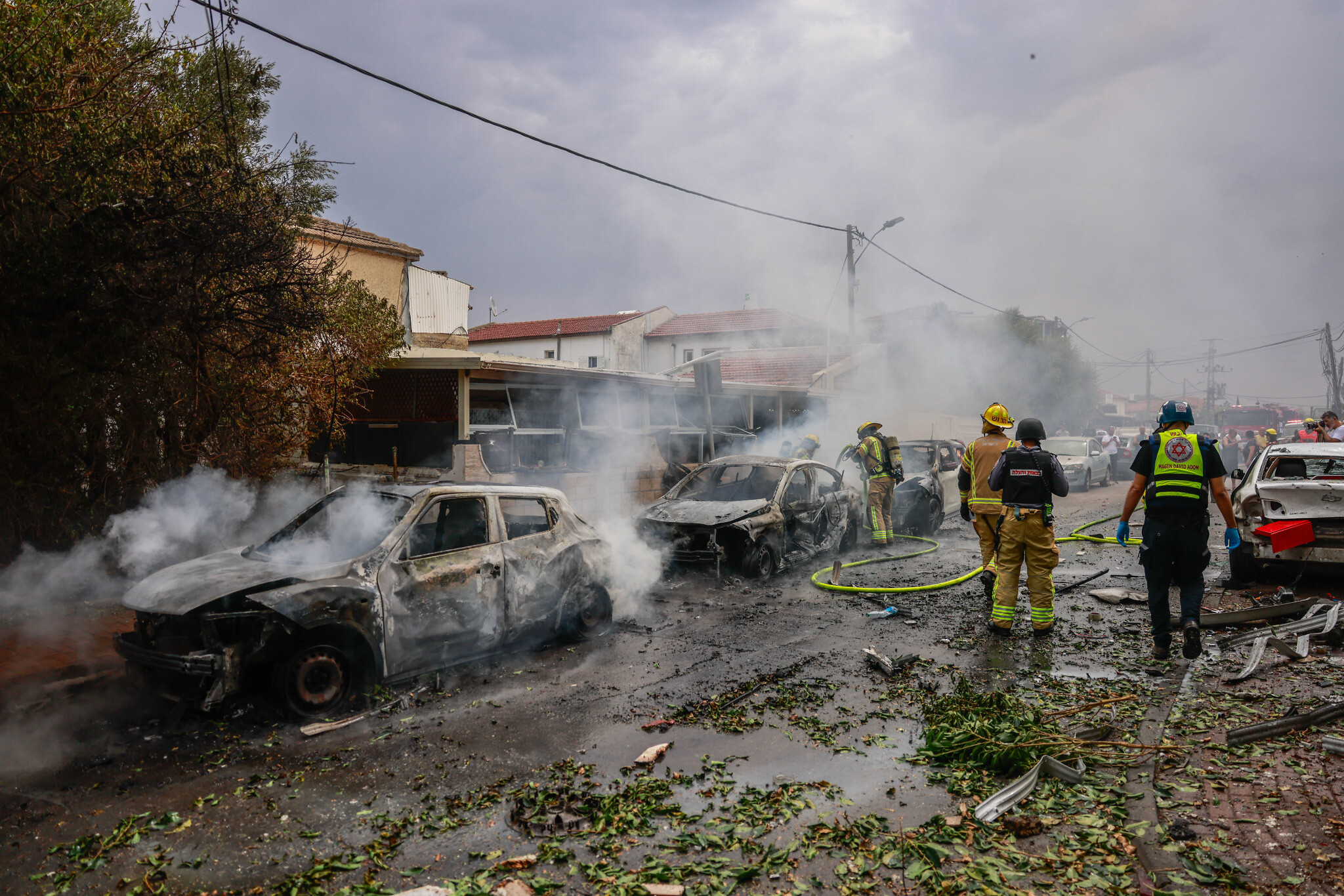Israel’s Resolute Push: IDF Regains Full Control of Gaza Border Towns Amid Ongoing War with Hamas

Israel’s Resolute Push: IDF Regains Full Control of Gaza Border Towns Amid Ongoing War with Hamas
In a determined effort to quell the escalating conflict with Hamas, the Israeli Defense Forces (IDF) have achieved a significant milestone by regaining “full control” of all towns located along the Gaza border. The announcement was made by IDF spokesperson Rear Admiral Daniel Hagari on Monday, marking a pivotal moment in the ongoing clash between Israel and the militant group Hamas.
The latest development underscores the relentless commitment of the IDF to safeguard the security of its citizens and regain control of areas that have been under threat from rocket attacks and incursions by Hamas. However, it is important to note that Rear Admiral Hagari also cautioned that remnants of Hamas terrorists may still be present in the area, highlighting the complex and ongoing nature of the conflict.
The conflict, which has now entered its third day, has seen both sides engaged in intense hostilities. The IDF’s operation to regain control of the border towns has been marked by courage and determination, as they strive to protect Israeli civilians and ensure the safety and security of the region.
Since the eruption of hostilities, the situation on the ground has been volatile, with sporadic clashes and frequent rocket attacks. The IDF’s recent success in regaining control of the border towns signifies a significant step forward in their mission to thwart the threat posed by Hamas, but the challenges persist as isolated clashes continue to unfold.
The border towns along the Gaza Strip have long been a contentious and vulnerable area, serving as the frontline of the conflict between Israel and Hamas. The importance of regaining control of these towns cannot be overstated, as it is essential for Israel’s national security and the well-being of its citizens.

Hamas, designated as a terrorist organization by Israel, the United States, and the European Union, has been a persistent threat to regional stability. Their tactics often involve launching rocket attacks into Israeli territory from the Gaza Strip, putting Israeli civilians at risk and provoking military responses from Israel.
The IDF’s operation to regain control of the Gaza border towns is a direct response to these threats. By securing these areas, Israel aims to disrupt Hamas’s ability to carry out attacks and protect its citizens from the constant threat of rocket fire. The operation reflects the Israeli government’s commitment to safeguarding its people and maintaining peace and security in the region.
The ongoing conflict has generated significant concern both domestically and internationally. Leaders from various countries have called for an immediate cessation of hostilities and a return to negotiations to achieve a lasting peace. The United Nations and other international organizations have also expressed their deep concern about the escalating violence and its impact on civilians.
The situation in Gaza and Israel is undeniably complex, with a long history of conflict and tension. Efforts to reach a lasting peace agreement have proven elusive, and the cycle of violence has persisted for years, leading to immense suffering on both sides.
The IDF’s successful push to regain control of the Gaza border towns raises questions about the prospects for a peaceful resolution to the conflict. While the Israeli government has expressed its commitment to the security and well-being of its citizens, there is a growing international consensus that a negotiated settlement is the only viable path forward.

The United States, a key ally of Israel, has called for restraint on both sides and urged a de-escalation of the conflict. President Joe Biden has affirmed Israel’s right to defend itself against attacks but has also emphasized the importance of minimizing civilian casualties and finding a diplomatic solution.
The international community, including the United Nations, has also called for an immediate ceasefire and a return to negotiations. The suffering of civilians, including women and children, caught in the crossfire is a source of deep concern for the world.
Amid the ongoing violence, humanitarian organizations are working tirelessly to provide aid and support to those affected by the conflict. Hospitals in Gaza have been overwhelmed by the influx of casualties, and shortages of essential supplies are exacerbating the crisis. Aid agencies are struggling to deliver much-needed assistance to those in need, and the situation is becoming increasingly dire.
The United Nations has called for unrestricted humanitarian access to Gaza to ensure that aid can reach those who require it most urgently. The international community is mobilizing resources and support to address the humanitarian crisis that has emerged alongside the military conflict.
As the conflict continues, the world watches with bated breath, hoping for a swift resolution that will spare further loss of life and suffering. The situation on the ground remains fluid, with the potential for further escalation or a shift towards a ceasefire and renewed negotiations.
In conclusion, the IDF’s achievement in regaining “full control” of the Gaza border towns is a testament to their unwavering commitment to protecting Israeli citizens and securing the region. However, the complex and ongoing nature of the conflict with Hamas underscores the challenges that lie ahead. The international community must continue to work towards a peaceful resolution that addresses the root causes of the conflict and ensures the safety and well-being of all those affected by the violence. Until then, the region remains mired in uncertainty and the hope for lasting peace remains elusive.





